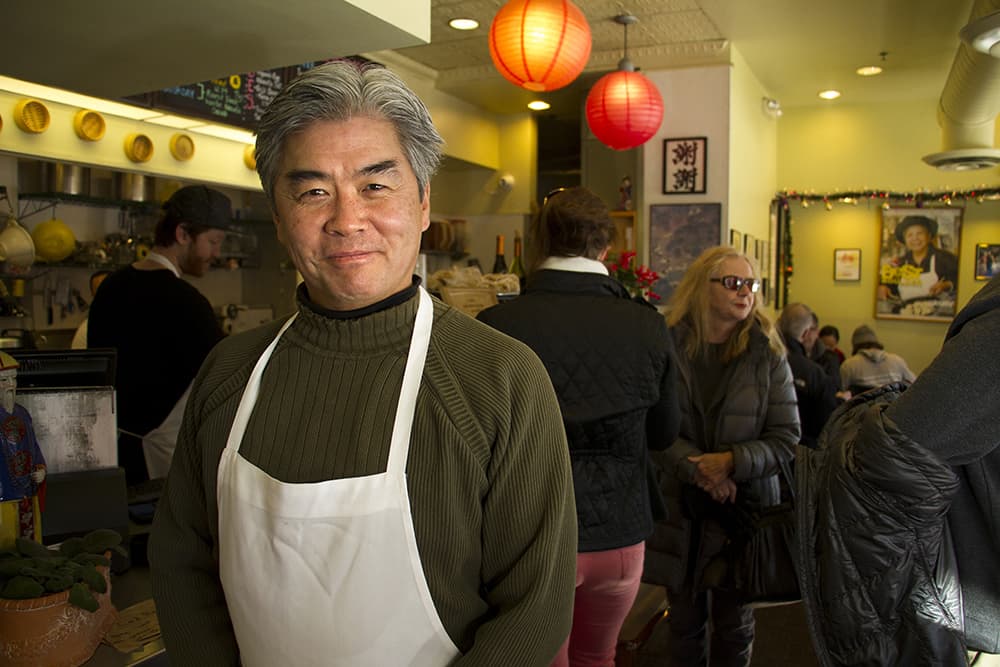
Minimum-wage workers in Colorado will get a voter-approved raise in January, but where their additional cents will come from still remains to be seen.
Some companies have said they’ll eat the expense of paying for more waiters, maids and other entry-level earners. Others have said they’ll pass the new costs on to customers or in some cases eliminate positions to save money.
Eighty-nine percent of the Colorado Restaurant Association’s membership said they'd increase prices to manage a hike in minimum wage, 72 percent plan to reduce hours for employees and 71 percent plan to cut jobs, according to a 2015 survey from the association.
“Business associations, like the Colorado Restaurant Association, always, always say the sky is going to fall whenever there is anything that passes that helps workers and working families. And the sky never falls,” Debra Brown said.
Brown is the business manager of Colorado Business for a Fair Minimum Wage, a group that helped get Amendment 70 passed in November. The amendment adds 99 cents to the minimum wage of hourly workers in 2017 and brings their pay up to $9.30 per hour. The new law also gives a 99-cent hourly raise to waiters and other employees. The increase brings the tipped employee minimum wage to $6.28.
Amendment 70 calls for the hourly minimum wage to increase gradually to $12 per hour — $8.98 per hour for tipped employees — by 2020. The law is expected to increase pay for more than 400,000 workers in Colorado.
Source: Colorado Department of Labor and Employment (Adrian D. Garcia/Denverite)
Last year, Edwin Zoe was able to start paying his employees at the Denver location of his fast-casual Chinese restaurant Zoe Ma Ma at least $10 an hour by replacing tips with a standard fee on every ticket.
"Tipping benefits the few," Zoe said. "Based on the study that was conducted by Cornell (University), there are gender and ethnic biases that are inherent in the tipping system. And also there is an inequity in terms of pay for the front of the house versus the back of the house."
Removing tipped workers can also add some stability to a restaurant's budget. Workers who don't earn tipped wages make the same amount hourly whether nobody comes in a restaurant during a week or a million people do. But with tipped workers, unexpected slow weeks might mean employees don't earn enough through their wages and tips to meet state's hourly minimum wage requirements. That leaves employers holding the tab to make up the difference.
Zoe plans to expand the no tipping policy at his Boulder store in January. But he recognizes that the model might not work for all eateries and some challenges lie ahead for his peers.
"For a full-service restaurants, especially fine dining and successful ones, their employees are already making $20, $30 or $40 an hour," he said. "So from the owners' perspective it's, 'If I'm already providing an environment for my tipped employees to make that much an hour, why am I being asked to increase their pay?'"
Those additional dollars are worth spending if it means hundreds of thousands of workers will get the wage they need to pay for food, housing and other expenses, Zoe said.
The Massachusetts Institute of Technology estimated that a living wage in Colorado was $11.61 an hour for a one-adult household in 2015 and generally higher for larger families.

No restaurant wants to be the poster child for being opposed to the new law or publicize that they're not sure how to implement it, said Carolyn Livingston, spokeswoman for the Colorado Restaurant Association.
"Restaurants typically operate on a very short and small profit margin of 3 to 6 percent, so trying to figure out how they're going to pay for the increase in labor costs is something they're struggling with," Livingston said. "So prices are going to be looked at. Eliminating busers and support staff is going to be looked at. Some folks are looking at implementing technology — anything to just try to stay in business without having to close the doors."
University of Denver assistant professor Jennifer Greenfield doesn't believe giving more to those at the bottom tier of the pay scale is necessarily a bad thing.
"In cities that have done this already, there’s actually an acceleration of economic activity and businesses end up with more demand for service," she said.
Greenfield co-authored a report in September that showed $400 million would be added to the state economy if Amendment 70 passed because low-wage workers would spend more. That's not to say the law is without risks. For example, if the Affordable Care Act is slashed or significantly altered, some workers might make too much to qualify for government-subsidized benefits but not earn enough to pay for private health insurance. There's also concern that rural businesses in the state might not be able to endure the uptick in labor costs as well as their peers in metro regions.
"I can understand why businesses would be nervous, but I think people will be pleasantly surprised what happens when workers have a little more room in their paycheck to buy what they need," Greenfield said.
The co-founder and president of Boulder-based manufacturer Product Architects Inc., Judy Amabile, was pleasantly surprised by what she saw after boosting the company's starting hourly pay to $12 an hour in 2011.
"We almost completely eliminated turnover, and we had better employees who were more enthusiastic about their job," Amabile said.
She originally thought a dip in profits would be worth making sure the company's roughly 45 workers could better be able to afford to live in the area. Instead, workers started making more Polar Bottle water bottles and the cost of replacing and retraining workers went down. It actually generated money for the company.
"But here's the thing, we're still at $12 an hour for starting pay, and it's been five years," she said. Given that Amendment 70 passed and the cost of living continues to go up, Product Architects will likely boost its starting pay to $13 an hour in 2017.
"Amendment 70 gives our employees a little more opportunity to move jobs and find equivalent pay somewhere else. That makes us have to be a better employer to keep our employees, and I think that's a good thing," she said.
"When you occupy 40 hours or more of someone's week, I think you should help provide them with a decent life."
Subscribe to Denverite’s newsletter here. Business & data reporter Adrian D. Garcia can be reached via email at [email protected] ortwitter.com/adriandgarcia.











